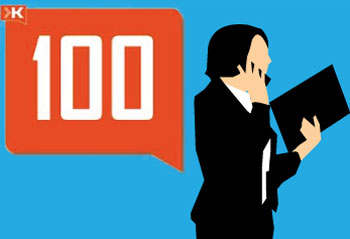 On most scales I’d be happy to rate a “10” but not on my Klout score. OK, OK, Justin Bieber is the top of that scale with a Klout score of 100 – clearly my influence is much lower. But since I have a very active virtual presence, I expected to rate higher than 10. I was slightly comforted to find out that my favorite columnist Lucy Kellaway, who actually has 20,000 followers on Twitter, also only rated a 10. In a recent article, she claims she’s proud to have no Klout. I, however, would like to have more and here’s why.
On most scales I’d be happy to rate a “10” but not on my Klout score. OK, OK, Justin Bieber is the top of that scale with a Klout score of 100 – clearly my influence is much lower. But since I have a very active virtual presence, I expected to rate higher than 10. I was slightly comforted to find out that my favorite columnist Lucy Kellaway, who actually has 20,000 followers on Twitter, also only rated a 10. In a recent article, she claims she’s proud to have no Klout. I, however, would like to have more and here’s why.
Klout is only one of many “influence analyzers” that judge how much impact your opinion has on others and how much you are influenced by others. Michael Schrage, in another recent article, reports on memes that claim low Klout scores can cost you a job or a job interview.
According to their website, your Klout score is measured by more than 400 “signals” on seven social media platforms. The algorithm weights different criteria from your activity on Facebook, Twitter, Google+, LinkedIn, Wikipedia, FourSquare and even Klout itself.
You may not agree with that measurement tool. But as a thought leader, it’s important that your influence is measured and that you take steps to improve it – even if it’s not yet a 10 and it will never be a 100.
Do you cite and reference, retweet and scoop? Are you cited and referenced, retweeted and scooped? Are you as a thought leader “doing” social media yourself or are you “kloutsourcing” it to your PR teams? Are they preserving your authentic online voice? Ask, assess, then act. We’re here to help!

Pingback: How to Know If You’re Sitting in the Catbird Seat |